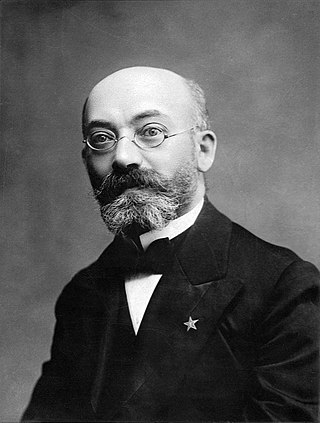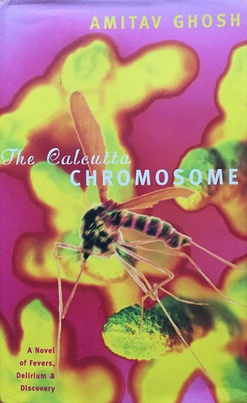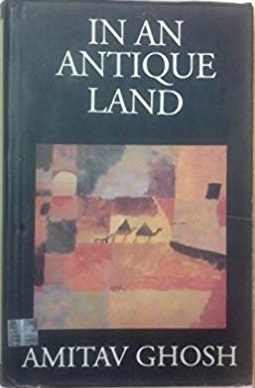
Esperanto is the world's most widely spoken constructed international auxiliary language. Created by L. L. Zamenhof in 1887, it is intended to be a universal second language for international communication, or "the international language". Zamenhof first described the language in Dr. Esperanto's International Language, which he published under the pseudonym Doktoro Esperanto. Early adopters of the language liked the name Esperanto and soon used it to describe his language. The word esperanto translates into English as "one who hopes".

Greek is an independent branch of the Indo-European family of languages, native to Greece, Cyprus, Italy, southern Albania, and other regions of the Balkans, the Black Sea coast, Asia Minor, and the Eastern Mediterranean. It has the longest documented history of any Indo-European language, spanning at least 3,400 years of written records. Its writing system is the Greek alphabet, which has been used for approximately 2,800 years; previously, Greek was recorded in writing systems such as Linear B and the Cypriot syllabary. The alphabet arose from the Phoenician script and was in turn the basis of the Latin, Cyrillic, Coptic, Gothic, and many other writing systems.

L. L. Zamenhof was the creator of Esperanto, the most widely used constructed international auxiliary language.
Philology is the study of language in oral and written historical sources. It is the intersection of textual criticism, literary criticism, history, and linguistics with strong ties to etymology. Philology is also defined as the study of literary texts and oral and written records, the establishment of their authenticity and their original form, and the determination of their meaning. A person who pursues this kind of study is known as a philologist. In older usage, especially British, philology is more general, covering comparative and historical linguistics.

Coptic is a group of closely related Egyptian dialects, representing the most recent developments of the Egyptian language, and historically spoken by the Copts, starting from the third century AD in Roman Egypt. Coptic was supplanted by Arabic as the primary spoken language of Egypt following the Arab conquest of Egypt and was slowly replaced over the centuries. Coptic has no native speakers today, although it remains in daily use as the liturgical language of the Coptic Orthodox Church and of the Coptic Catholic Church. Innovations in grammar and phonology and the influx of Greek loanwords distinguish Coptic from earlier periods of the Egyptian language. It is written with the Coptic alphabet, a modified form of the Greek alphabet with several additional letters borrowed from the Demotic Egyptian script.

Literary theory is the systematic study of the nature of literature and of the methods for literary analysis. Since the 19th century, literary scholarship includes literary theory and considerations of intellectual history, moral philosophy, social philosophy, and interdisciplinary themes relevant to how people interpret meaning. In the humanities in modern academia, the latter style of literary scholarship is an offshoot of post-structuralism. Consequently, the word theory became an umbrella term for scholarly approaches to reading texts, some of which are informed by strands of semiotics, cultural studies, philosophy of language, and continental philosophy.

Henry Louis Mencken was an American journalist, essayist, satirist, cultural critic, and scholar of American English. He commented widely on the social scene, literature, music, prominent politicians, and contemporary movements. His satirical reporting on the Scopes Trial, which he dubbed the "Monkey Trial", also gained him attention. The term Menckenian has entered multiple dictionaries to describe anything of or pertaining to Mencken, including his combative rhetorical and prose style.
Proto-Esperanto is the modern term for any of the stages in the evolution of L. L. Zamenhof's language project, prior to the publication of Unua Libro in 1887.

The Cairo Geniza, alternatively spelled Genizah, is a collection of some 400,000 Jewish manuscript fragments and Fatimid administrative documents that were kept in the genizah or storeroom of the Ben Ezra Synagogue in Fustat or Old Cairo, Egypt. These manuscripts span the entire period of Middle-Eastern, North African, and Andalusian Jewish history between the 6th and 19th centuries CE, and comprise the largest and most diverse collection of medieval manuscripts in the world.
A classical language is any language with an independent literary tradition and a large body of ancient written literature.
Khâgne, officially known as classes préparatoires littéraires, is a two-year academic program in the French “post-bac” (≈undergraduate) system, with a specialization in literature and the humanities. It is one of the three main types of Classe préparatoire aux grandes écoles, contrasting with other CPGE majors such as Maths Sup in mathematics and engineering, or Prépa HEC in the business domain.

Amitav Ghosh is an Indian writer. He won the 54th Jnanpith award in 2018, India's highest literary honor. Ghosh's ambitious novels use complex narrative strategies to probe the nature of national and personal identity, particularly of the people of India and South Asia. He has written historical fiction and also written non-fiction works discussing topics such as colonialism and climate change.
Literae humaniores, nicknamed classics, is an undergraduate course focused on classics at the University of Oxford and some other universities. The Latin name means literally "more human literature" and was in contrast to the other main field of study when the university began, i.e. res divinae, also known as theology. Lit. hum., is concerned with human learning, and lit. div. with learning treating of God. In its early days, it encompassed mathematics and natural sciences as well. It is an archetypal humanities course.

The Calcutta Chromosome is a 1995 English-language novel by Indian author Amitav Ghosh. The book, set in Calcutta and New York City at some unspecified time in the future, is a medical thriller that dramatizes the adventures of people who are brought together by a mysterious turn of events. The book is loosely based on the life and times of Sir Ronald Ross, the Nobel Prize–winning scientist who achieved a breakthrough in malaria research in 1898. The novel was the recipient of the Arthur C. Clarke Award in 1997.
Like natural languages, the constructed language Esperanto contains profane words and indecent vocabulary. Some of this was formulated out of the established core vocabulary, or by giving specific profane or indecent senses to regularly formed Esperanto words. Other instances represent informal neologisms that remain technically outside the defined vocabulary of the language, but have become established by usage.
English studies is an academic discipline taught in primary, secondary, and post-secondary education in English-speaking countries. This is not to be confused with English taught as a foreign language, which is a distinct discipline. The English studies discipline involves the study, analysis, and exploration of English literature through texts.

A constructed language is a language whose phonology, grammar, and vocabulary, instead of having developed naturally, are consciously devised for some purpose, which may include being devised for a work of fiction. A constructed language may also be referred to as an artificial, planned or invented language, or a fictional language. Planned languages are languages that have been purposefully designed; they are the result of deliberate, controlling intervention and are thus of a form of language planning.

In an Antique Land is a 1992 book written in first-person by Indian writer Amitav Ghosh recounting his experiences in two Egyptian villages attempting to retrace accounts of an unknown Indian slave, as well as a reconstruction of the life of a 12th-century Jewish merchant in the area. It describes a variety of characters, going into great detail regarding their lives and Ghosh's interactions with them.
The Ibis trilogy is a work of historical fiction by Indian writer Amitav Ghosh, consisting of the novels Sea of Poppies (2008), River of Smoke (2011) and Flood of Fire (2015). A work of postcolonial literature, the story is set across the Indian Ocean region during the 1830s in the lead-up to the First Opium War. It particularly focuses on the trade of opium between India and China and the trafficking of girmityas to Mauritius. The series has received critical acclaim and academic attention for its historical research, themes and ambition. A television series adaptation was announced to be in development in 2019.

Abram Antoni Kofman, also known as Abraham S. Kofman, was a Russian Esperanto–language poet. Born in Odesa, Kofman was an early supporter of Esperanto, and one of the first Russian Jews to be so, learning the language in 1889. Kofman was a high-profile member of the first school of Esperanto literature, and had his work featured in the first anthologies of Esperanto poetry. He was responsible for translations of several sections of the Hebrew Bible in both Esperanto and its daughter language, Ido. Kofman also influenced the development of the international religion Hillelism by the creator of Esperanto, L. L. Zamenhof in 1901. Eventually switching languages from Esperanto to Ido, and later Occidental, Kofman purportedly died during aerial bombing in Odesa.












